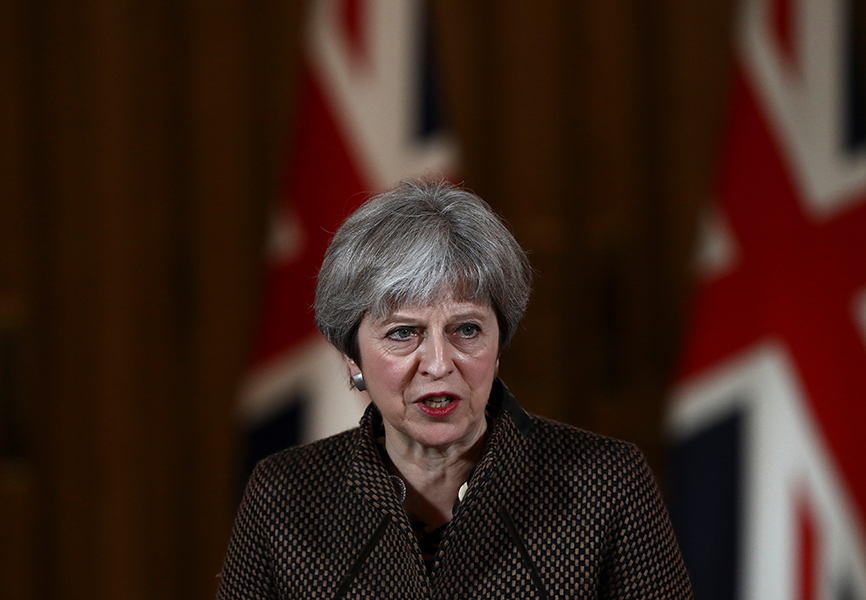In a vote that sent shock waves through the EU, the British decided to leave the 28-member club in a referendum on 23 June 2016. The move raised concerns about the future of Europe's ambitious project of economic and political union and about the impact it would have on the UK economy. Eurasia Group analyst
Charles Lichfield explains where things stand two years later.
What issues have been settled in Brexit talks? What remains?
The EU forced the UK to reach basic agreements on the key issues raised by its departure—dues owed, the rights of UK and EU citizens, and the border separating Northern Ireland from the Republic of Ireland—before discussing the future relationship between the two sides. In December, sufficient progress allowed talks on a transition period and future relations to begin. But a coherent and permanent solution is still needed to keep the Irish border open; this will force the UK to decide on what sort of trading relationship it wants with the EU going forward, as the Republic of Ireland remains part of the EU. The question may be partly solved in July, when Parliament will debate trade policy and could decide to stay in a customs union with the EU. The Article 50 exit process requires the UK to leave the EU on 29 March 2019; a transition period that allows businesses and others to prepare for the changeover to new UK-EU rules will run through 31 December 2020.
What does the UK want from Brexit negotiations?
Government policies have evolved since Prime Minister Theresa May lost her parliamentary majority and could shift further before the final vote on the UK-EU Withdrawal Agreement is held (expected sometime after November). There are diverging views within the cabinet, especially on customs. But at this stage, the official policy is to leave the single market when the transition ends in December 2020 and perhaps stay in the customs union until 2023, by which point ministers hope technology might enable the UK to diverge while keeping the Irish border open (the customs union is an enhanced free-trade area in which members apply a common external tariff; the single market takes regulatory harmonization much further and covers trade in services as well as goods). The UK also hopes to maintain cooperation with the EU on foreign policy, defense, research, and education.
What does the EU want?
Two years after the vote and fifteen months into the Article 50 process, EU institutions and member states are still remarkably united in their Brexit stance. They are satisfied that the sequencing of talks forced the UK to settle key exit issues and they want the sections of the Withdrawal Agreement on future relations to respect the EU's integrity and legal order. They believe the UK's red lines on controlling immigration rule out its participation in the single market. However, they also want to minimize the economic damage caused by Brexit, have accepted the transition period, and are ready to adapt their negotiating stance if the UK's red lines become more blurred.
Has there been any actual impact from Brexit on the UK so far?
Compared to the gloomy economic projections produced by international organizations and the “Remain” campaign ahead of the 2016 referendum, the decision to leave hasn't been too harmful so far. Unemployment remains low, though economic growth lags behind that of European peers. There are also signs that slowing investment will filter through into consumer sentiment, and this is before the real rupture with EU markets, which will come in 2021.
Is there any possibility that Brexit doesn't end up happening? If so, how?
The chances are slim. Despite countless mishaps, May is still in power and slowly moving toward Brexit. The most recent milestone was the political agreement of the EU27 on the transition period. However, the concessions she still needs to make to Brussels could expose her to wrath of the proponents of a sharp break from the EU within her party. This group has so far tolerated her approach by convincing themselves they can undo any concessions once the UK is out. But they could still abandon May if she makes a clumsy move on the customs issue. Were she to be replaced, the delicate balance in the Tory party would crumble, negotiations would stall, and public opinion, guided by increasingly effective online campaigns, could take a turn in favor of a new Brexit referendum. A new vote would have to be called by Parliament.
SUBSCRIBE TO GZERO DAILY
Sign up now for GZERO Daily, the newsletter for anyone interested in global politics, published by GZERO Media.
Charles Lichfield began as the Europe team's researcher with a wide variety of responsibilities. He now focuses on France, Germany, and the UK, while maintaining an interest in the EU's security, neighborhood, trade, and energy policies.

 UK Prime Minister Theresa May attends a press conference at 10 Downing Street. REUTERS.
UK Prime Minister Theresa May attends a press conference at 10 Downing Street. REUTERS.
